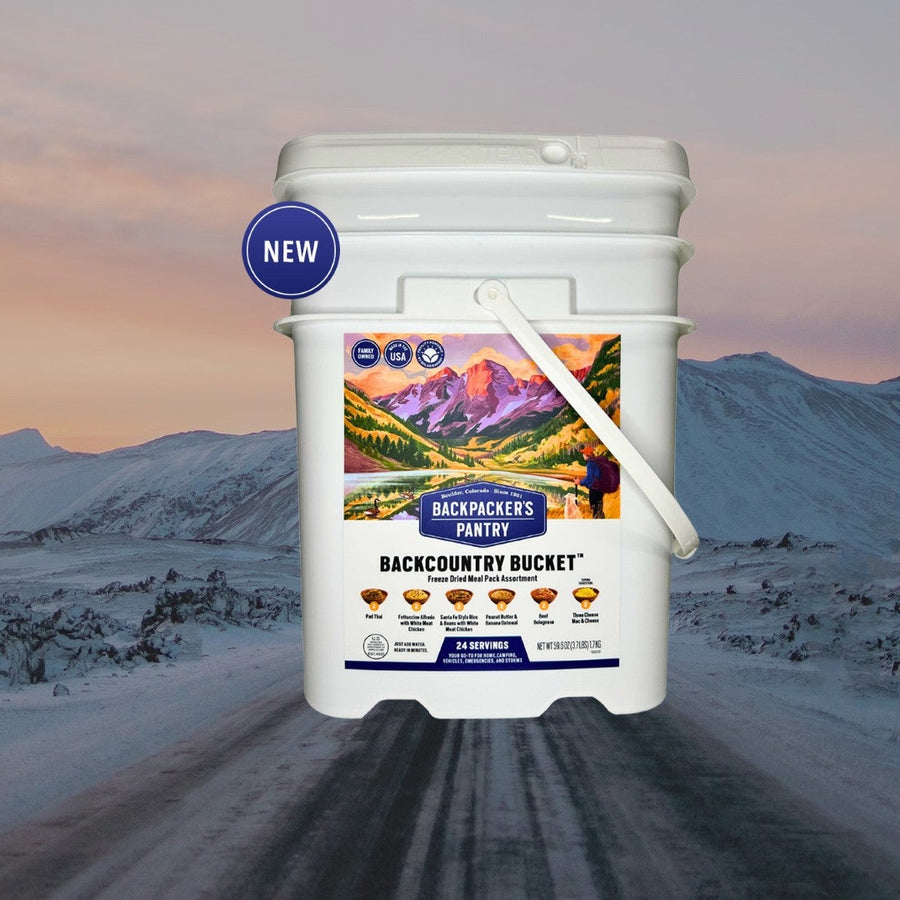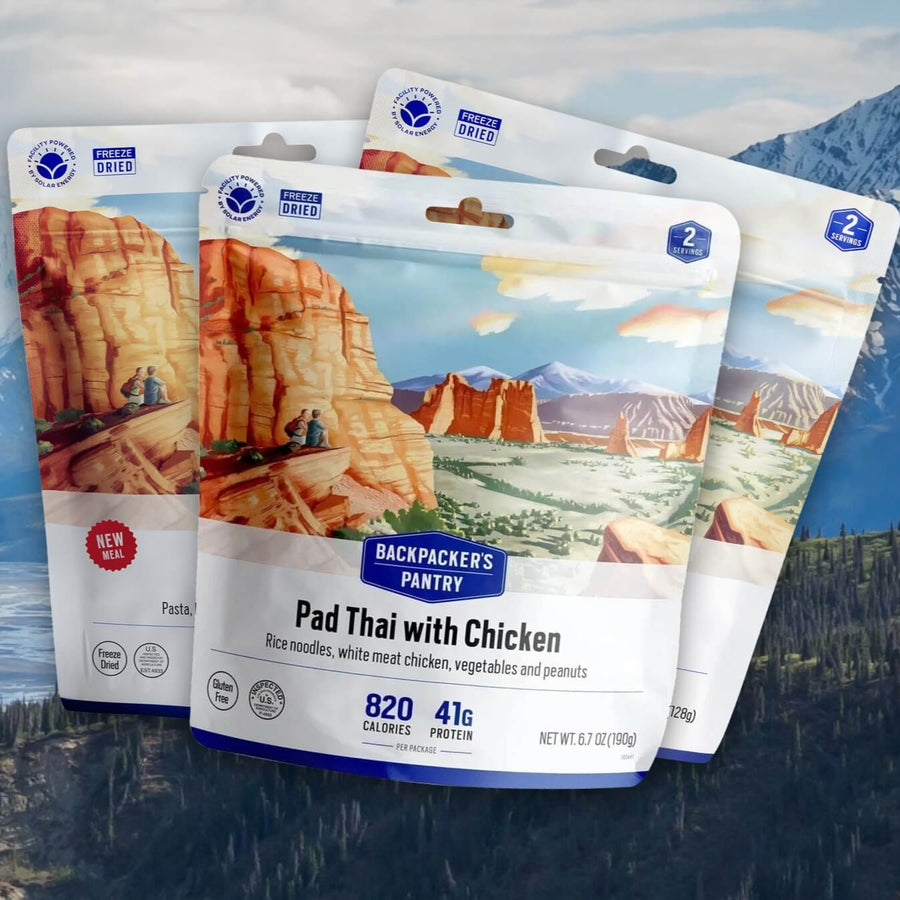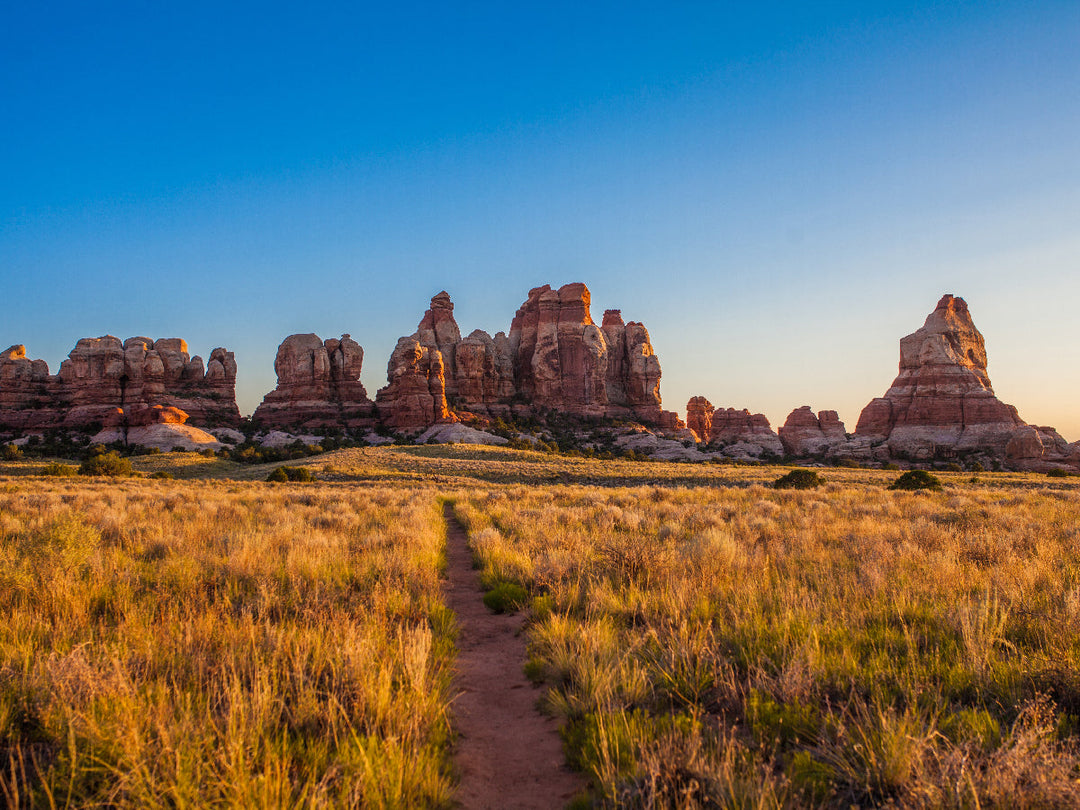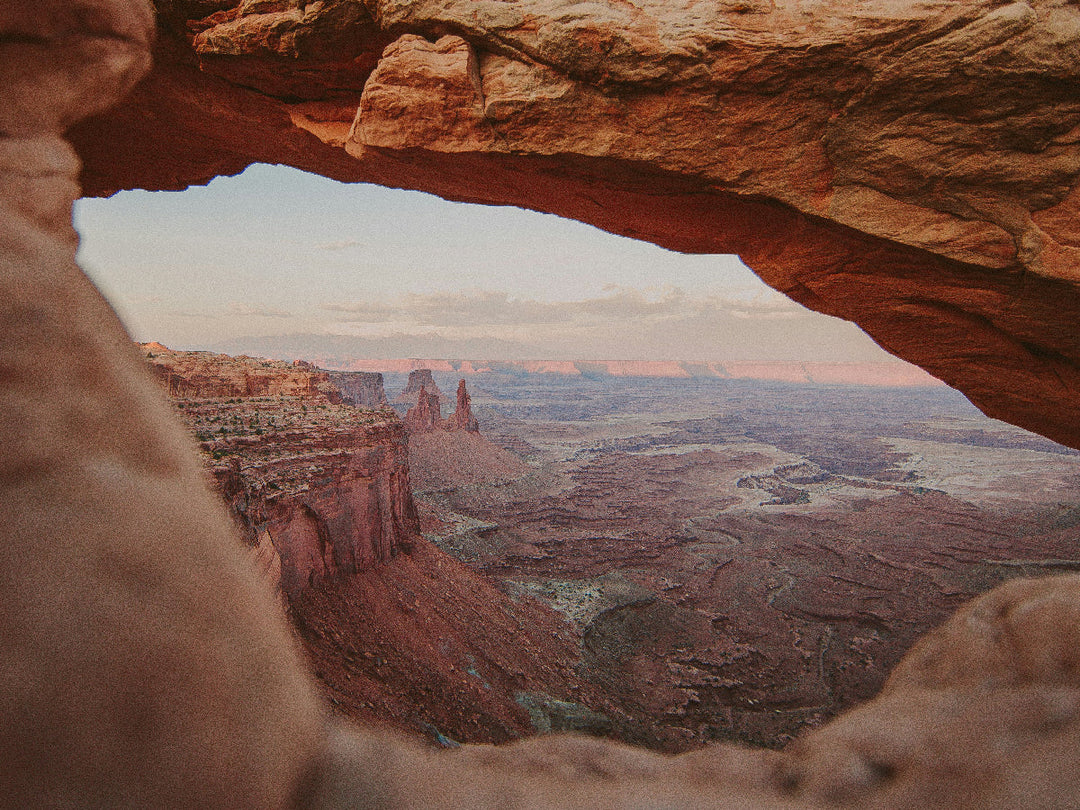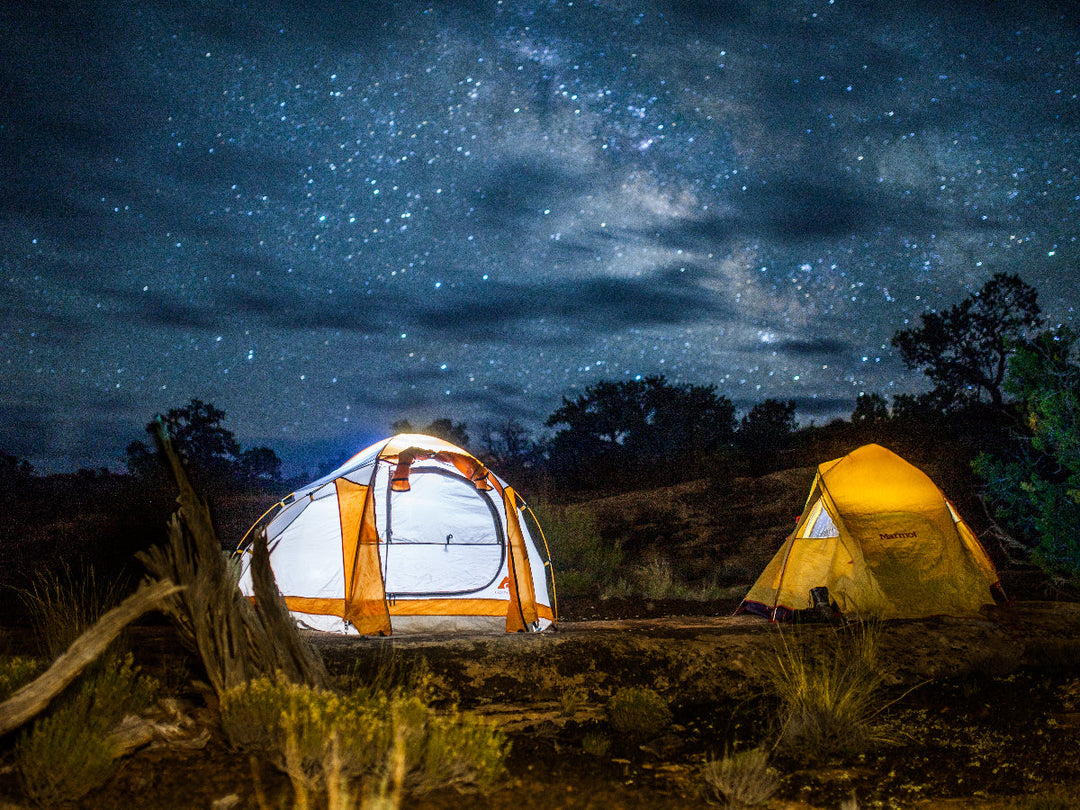How to Sleep Better Camping: The Ultimate Guide to a Better Night Outdoors
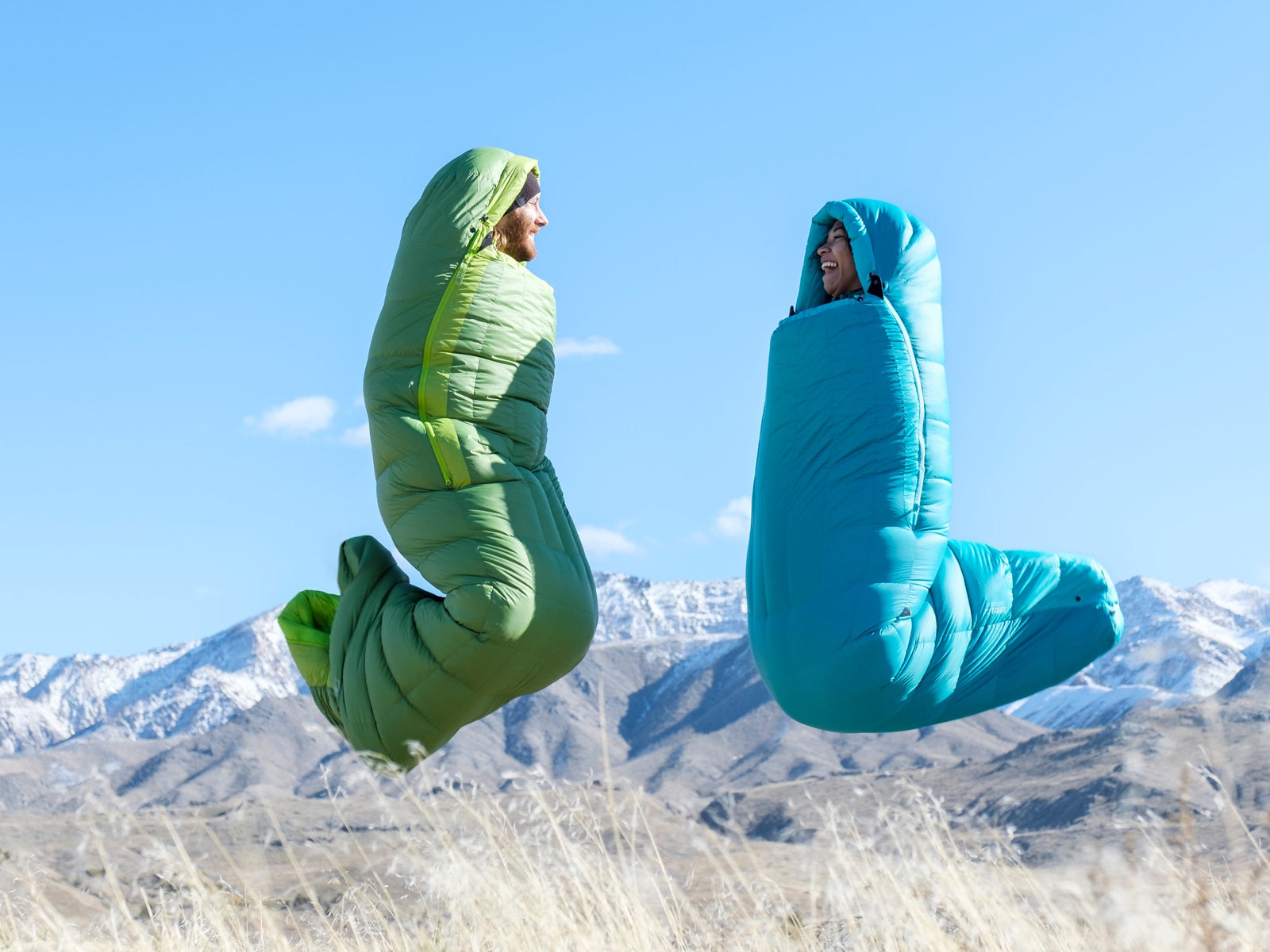
If you’ve ever been camping, you know sometimes it’s a toss-up whether it’s going to be the best or worst sleep of your life. Fresh air, going to sleep with the sun, muscles tired after a long day… or waking up every hour to roll yourself back up the slope, readjust that rock under your back.
While camping offers the chance to reconnect with nature, spend uninterrupted time with friends and family, and explore new places, one aspect that can often be challenging for campers is getting a good night's sleep. Luckily, the experts are here to help you dial in your sleeping gear, create a comfortable camp, and set up a nightly routine so you can wake up refreshed and ready for the day’s adventure.
Whether you’re car camping for the first time or gearing up for a multi-day backpack, let’s explore how to sleep better while camping… because a good night’s rest can make or break your time outdoors.
Getting Your Gear Right - Dialing in Your Sleep System
Before embarking on your camping trip, it's essential to ensure that you have the right gear to support a good night's sleep. This means everything from your tent to your pillow.
Choosing and Pitching Your Tent
Sleeping well starts with being protected from the elements, and the critters. A high-quality tent provides adequate protection and helps you stay at the right temperature - whether that’s warm in the winter or cool in the summer.
Here are some tips when shopping for a tent:
- Size: Treat the number of people a tent says it holds as its max capacity. If you’re car camping, depending on the comfort levels and sizes of the people in your group, you may want to opt for a slightly larger tent (if space allows). If you are backpacking and weight is your priority, get ready to get cozy.
- Tent seasons: When choosing a tent, understanding the "season" rating is crucial for determining the tent's suitability for various weather conditions. Generally, there are 3 and 4-season tents. In practical reality, 3-season means “everything but winter” and 4-season means winter. 4-season tents are much more robust and warm, which is great if you're snow camping, but not so much if it’s 90 degrees.
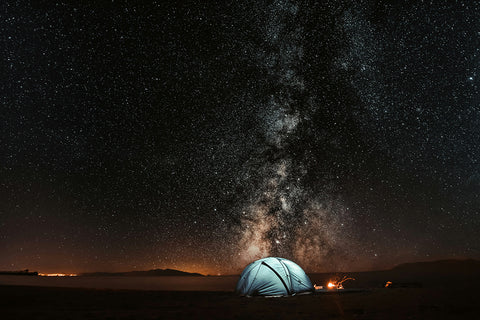
Choosing Your Sleeping Pad and Bag
Starting with the most important piece - the sleeping pad or camping mattress. With several styles of sleeping pads, it’s sort of like your home mattress - you need to find what works best for you. This can mean going to the camping store and trying them out, how fun!
Depending on car camping versus backpacking, you’re options and size & weight tolerances will be much different. If there’s one place to go a little bit more heavyweight in your backpacking setup, this is it. A comfortable night’s sleep is imperative to a good time. Nowadays, ultralight sleeping pads and bags will give you more comfort than they used to.
Considerations for Choosing the Best Sleeping Pad
- Comfort! This is the most important part.
- Weight and size: If you're car camping, this doesn’t matter as much as backpacking.
- Noise: Is the pad crinkly and noisy when you shift around? This could keep you and your sleeping partners awake.
- Warmth: If you’re camping in cold temps your pad is super important for keeping you warm.
When selecting a sleeping bag, pick an appropriate temperature rating for the conditions you'll be camping in. Consider factors such as insulation type, shape, and size when choosing your sleeping bag, like if you prefer a little extra room in the legs or want a mummy or a rectangular shape.
Finally, a camping pillow is a must. There are compact options that barely make a difference in your bag, but a huge difference at night. If you’re car camping, you can bring pillows from home, too.
Campsite Choice and Tent Placement
Gear is helpful but how you use it will really make the difference. First, choose where you’ll sleep. You don’t want to wake up in the middle of the night on a tree root or with your whole group in a pile in the corner of the tent because you’re on a hill. Here are a few things to consider: proximity to other campsites, proximity to bathrooms, proximity to the road/trail, keeping your food and kitchen away from your tent to minimize the chance for curious critters to visit, and finally think about your surroundings. For example, a river might be a quaint backdrop that looks good on social media, until its rushing waters keep you up all night. And on the topic of your food and kitchen - make sure anything these items, even other scented items like sunscreen and toothpaste, are securely stored in a bear-proof container, bear vault, or properly hung up.
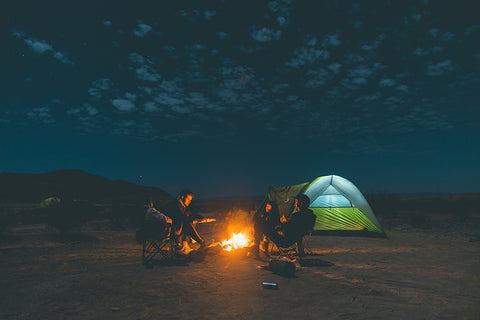
Preparing for Sleep
Nutrition: Nutrition can significantly impact the quality of your sleep while camping, just as it does in your everyday life. When you're camping, the connection between what you eat and how well you sleep might be even more pronounced due to the physical demands of outdoor activities.
Eating balanced meals that include carbohydrates, protein, and fats can help stabilize your energy levels throughout the day and help you feel ready to sleep when night comes. This means fueling well and not ignoring your body’s needs, especially if you are hiking and working hard. Likewise, hydration can be key. This also means watching your alcohol and caffeine intake. It might be tempting to overindulge in alcoholic beverages or caffeinated drinks like coffee or tea while camping, but both can impair your ability to fall asleep and the quality of sleep. Alcohol can make you drowsy initially but often leads to fragmented sleep.
Maintain your routines: Try to stick to your usual bedtime routine as much as possible, even while camping when the sun sets earlier than you may go to sleep. This could include activities like reading, playing cards or other camping games with a headlamp, or chatting around the campfire before going to bed. This is especially important for kids, but more on that from our experts below.
Stretch it out: Especially if you’re backpacking, roll out your sleeping pad when you get to camp and dedicate at least 15 minutes to give your hips, lower back, and shoulders the love they deserve. They’ll thank you at night and when you hit the trail the next day.
Layer appropriately: Dress in layers to adjust to changing temperatures throughout the night. Opt for moisture-wicking clothing (like merino wool baselayers) that will help keep you dry and comfortable. And always keep an extra pair of socks at the bottom of your sleeping bag too, just in case.
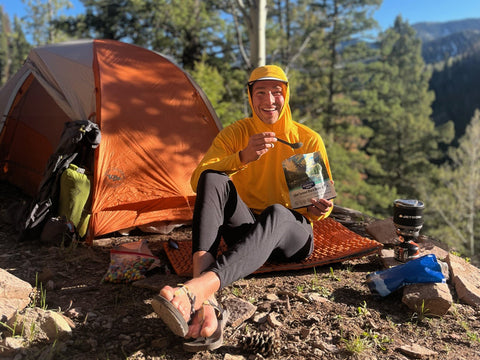
More Expert Advice
Nick Cornell, Former backpacking guide & thru-hiking triple crowner, on the importance of a good pillow.
For a high-quality sleep in the woods, I have found a comfy pillow is key. You can stuff clothes or a jacket into a stuff sack and cover it with a buff to make a soft pillow. Some companies sell a pillow stuff sack with a soft material on one side for the same effect.
Nick on scary thoughts and critter noises:
After miles of backpacking through black bear and grizzly bear territory I have been awoken many times by "frightening" sounds outside my tent. However, instead of picturing a scary man-eating bear outside my tent, I picture a cute squirrel romping around in the leaves outside. Because honestly, it usually is a squirrel anyway.
Rachel Nawrocki, Mountain Athlete Dietitian and Trainer, on the importance of nutrition to you camping sleep.
For higher quality sleep in the backcountry, it's key to eat a nutrient-dense balanced meal with protein, carbohydrate, and fat. Don't be afraid to reach for a calorie packed meal, you've burned a lot during the day and your body needs the energy to recover and sleep throughout the night. If you aren't refueling enough with a dinner meal, not only can you miss out on important nutrients, but hunger can wake you up throughout the night or make it harder to feel relaxed enough to enter deep sleep. Additionally, adequate nutrition is necessary for muscle recovery and producing sleep-regulating hormones serotonin and melatonin.
Emilie from Love Life Abroad, adventure mom of two boys and outdoor travel blogger shares her tips on camping with kids.
Camping with kids is so much fun, but it can quickly turn into a nightmare if the kids don’t get enough sleep. Installing a bedtime routine is one of the best tips to sleep better when camping with kids. This routine will have a few twists from your typical routine. First, let the kids go to bed a bit later than usual so it’s dark-ish. Then, plan some quiet time just before bedtime (stories by the fire, stargazing, book reading). Finally, lie down with the kids until they are about to fall asleep.

A good night's sleep is essential for enjoying a successful camping trip, especially when you have long, physical days ahead of you. By getting the right gear, mindfully setting up your campsite, and adequately preparing for sleep, you can optimize your sleep quality and get ready for the adventures ahead.
